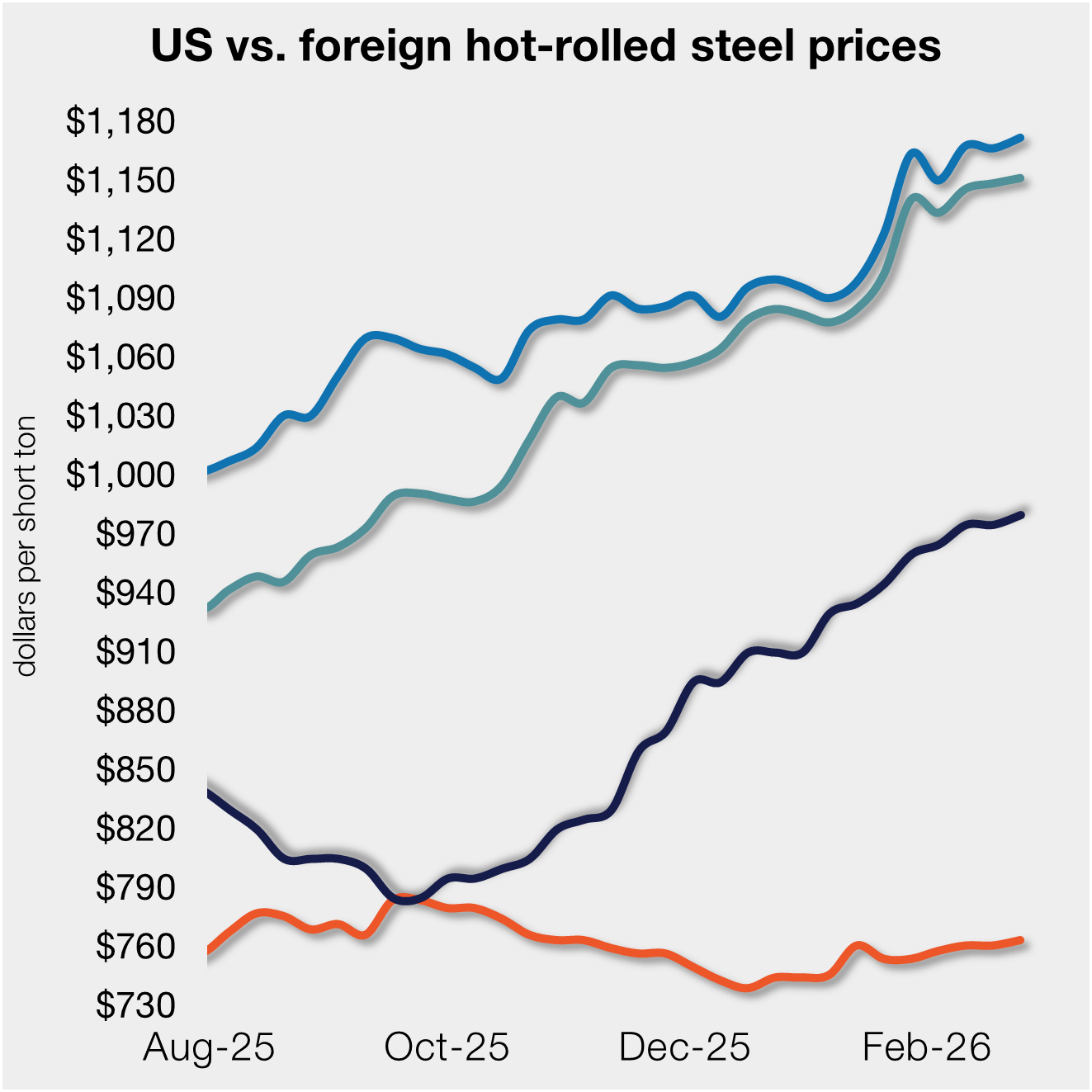Overseas
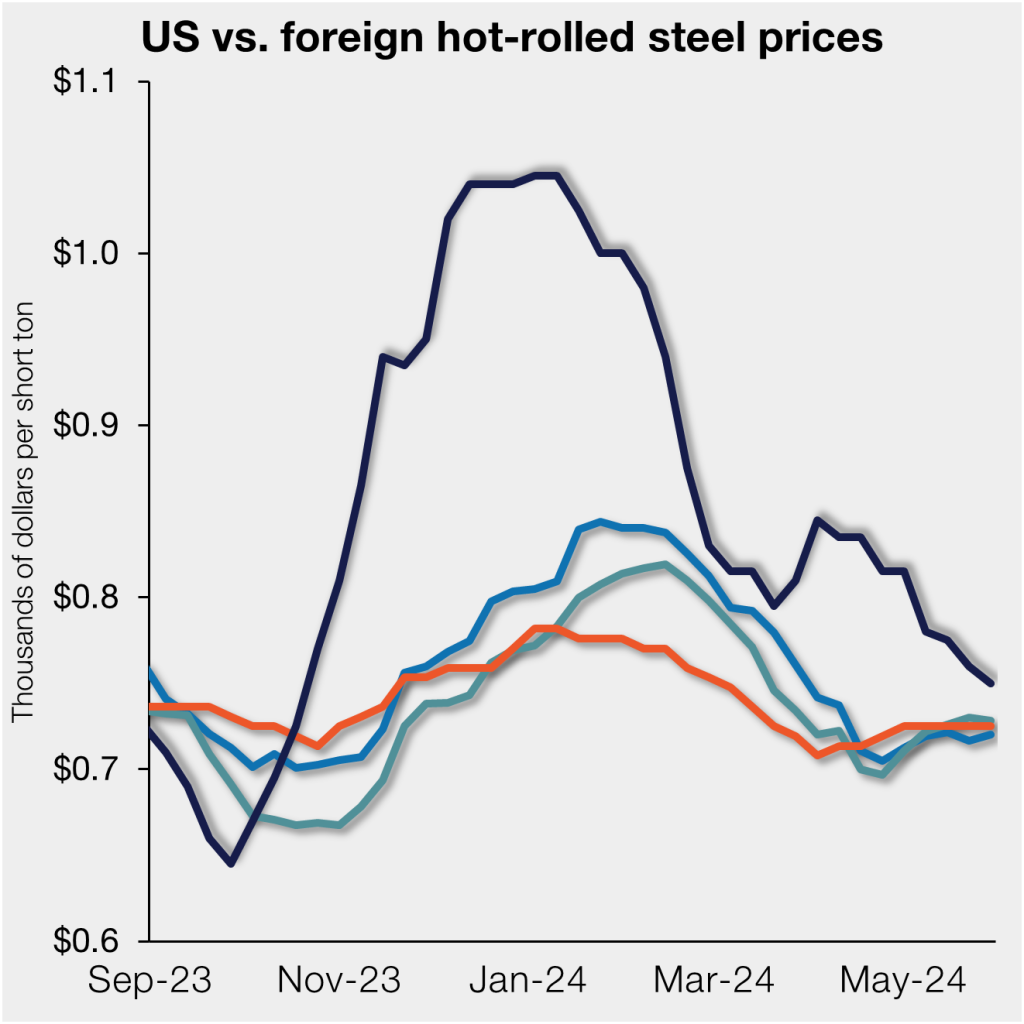
May 30, 2024
Domestic and offshore HRC prices nearly even
Written by David Schollaert
US hot-rolled (HR) coil prices ticked down further this past week, moving closer to parity with offshore hot band prices on a landed basis.
This week, domestic HR coil tags were $750/st on average based on SMU’s latest check of the market on Tuesday, May 28.
Domestic HR coil prices are now just 3.4% more expensive than imports. The premium is down from 4.7% last week and a 10-week high of 15.2% in mid-April.
In dollars-per-ton terms, US HR coil is now, on average, $26 per short ton (st) more expensive than offshore product (Figure 1). That’s down $10/st on average from last week and represents the lowest premium since last October.
The charts below compare HR prices in the US, Germany, Italy, and Asia. The left-hand side highlights prices over the last two years. The right-hand side zooms in to show more recent trends.
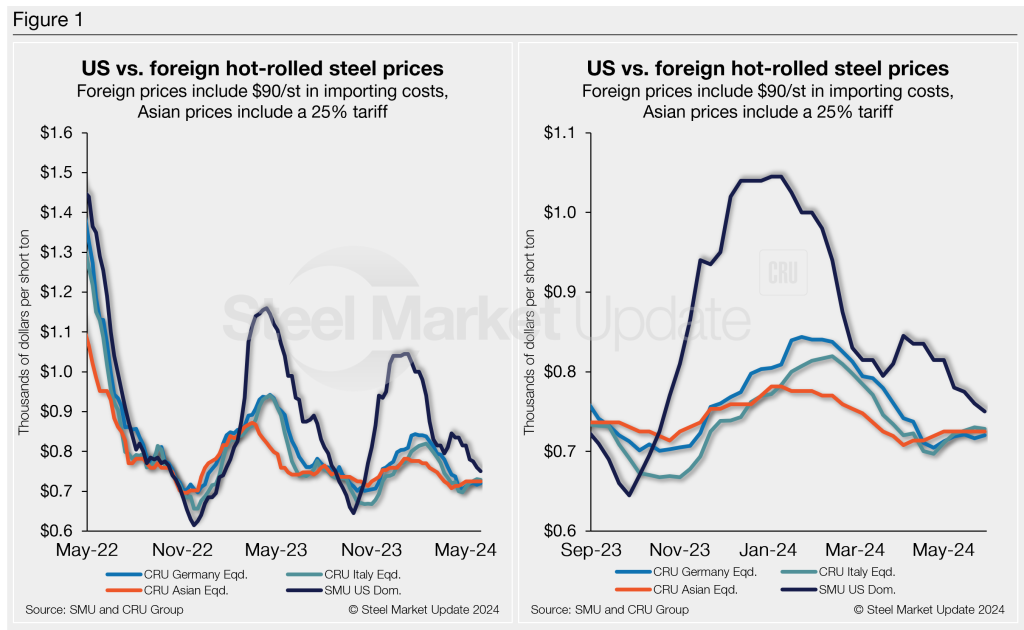
Methodology
This is how SMU calculates the theoretical spread between domestic HR coil prices (FOB domestic mills) and foreign HR coil prices (delivered to US ports): We compare SMU’s US HR coil weekly index to the CRU HR coil weekly indices for Germany, Italy, and East and Southeast Asian ports. This is only a theoretical calculation. Import costs can vary greatly, influencing the true market spread.
We add $90/st to all foreign prices as a rough means of accounting for freight costs, handling, and trader margin. This gives us an approximate CIF US ports price to compare to the SMU domestic HR coil price. Buyers should use our $90/st figure as a benchmark and adjust up or down based on their own shipping and handling costs. If you import steel and want to share your thoughts on these costs, please get in touch with the author at david@steelmarketupdate.com.
Asian HRC (East and Southeast Asian ports)
As of Thursday, May 30, the CRU Asian HRC price was $508/st, unchanged from the week prior. Adding a 25% tariff and $90/st in estimated import costs, the delivered price of Asian HRC to the US is approximately $725/st. The latest SMU hot rolled average for domestic material is $750/st.
The result: US-produced HRC is theoretically $25/st more expensive than steel imported from Asia. The spread is down $10/st vs. last week, and down $256/st from its seven-month high of $281/st in late December.
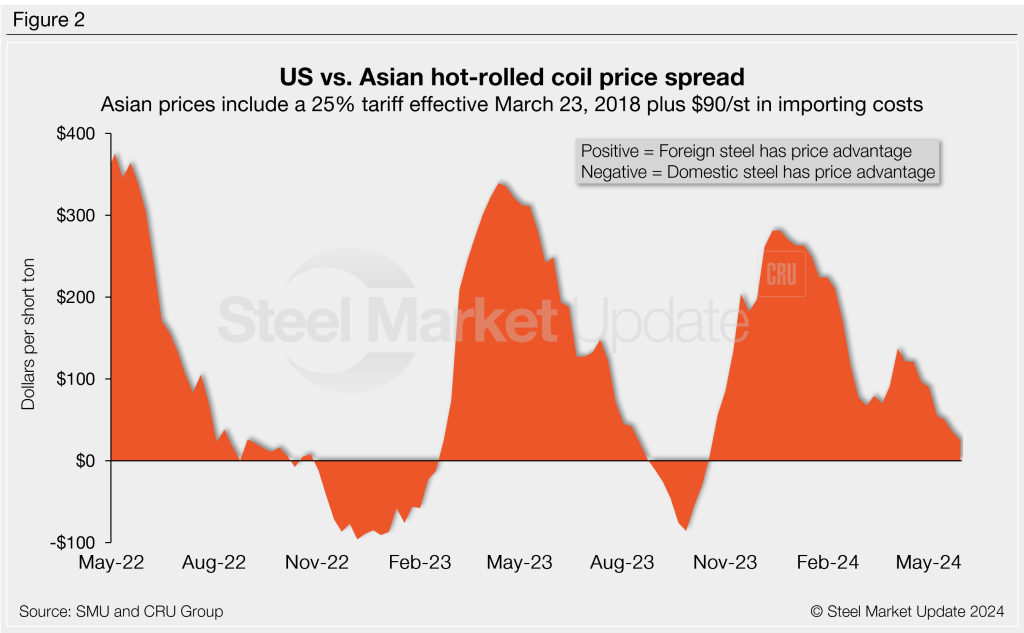
Italian HRC
Italian HR coil prices were down $2/st to roughly $638/st this week. After adding import costs, the delivered price of Italian HR coil is in theory $728/st.
That means domestic HR coil is theoretically about $22/st more expensive than HR coil imported from Italy. The spread is down $8/st from last week. The domestic hot band price premium over offshore product from Italy is now down $275/st from a recent high of $297/st in mid-December.
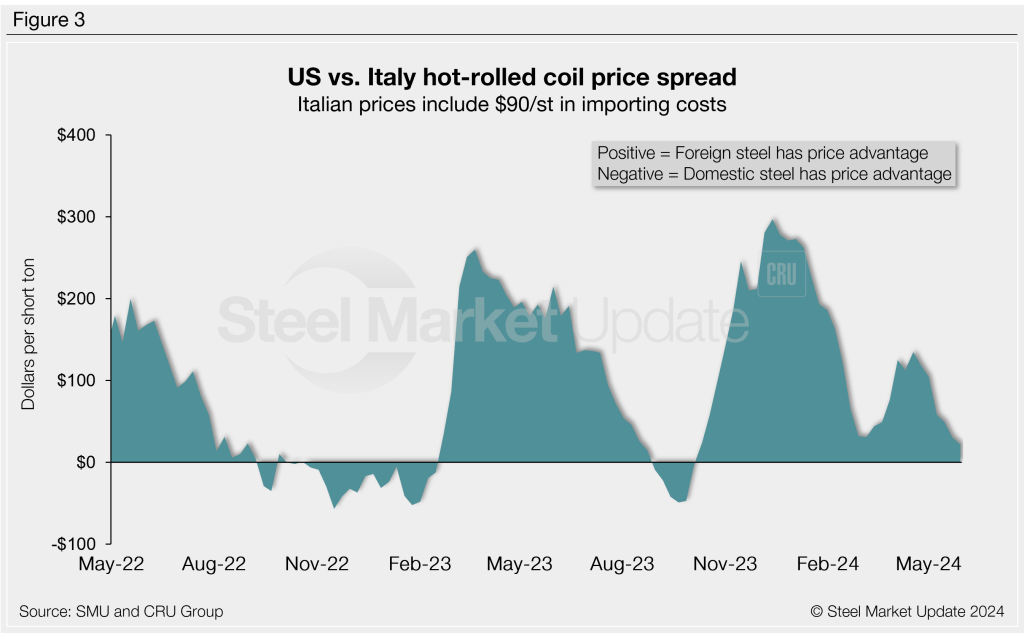
German HRC
CRU’s German HR coil price ticked up $3/st from the week before to $630/st. After adding import costs, the delivered price of German HR coil is in theory $720/st.
The result: Domestic HR coil is theoretically $30/st more expensive than HR coil imported from Germany. The spread is down $13/st week over week and $235/st away from 2023’s widest spread of $265/st.
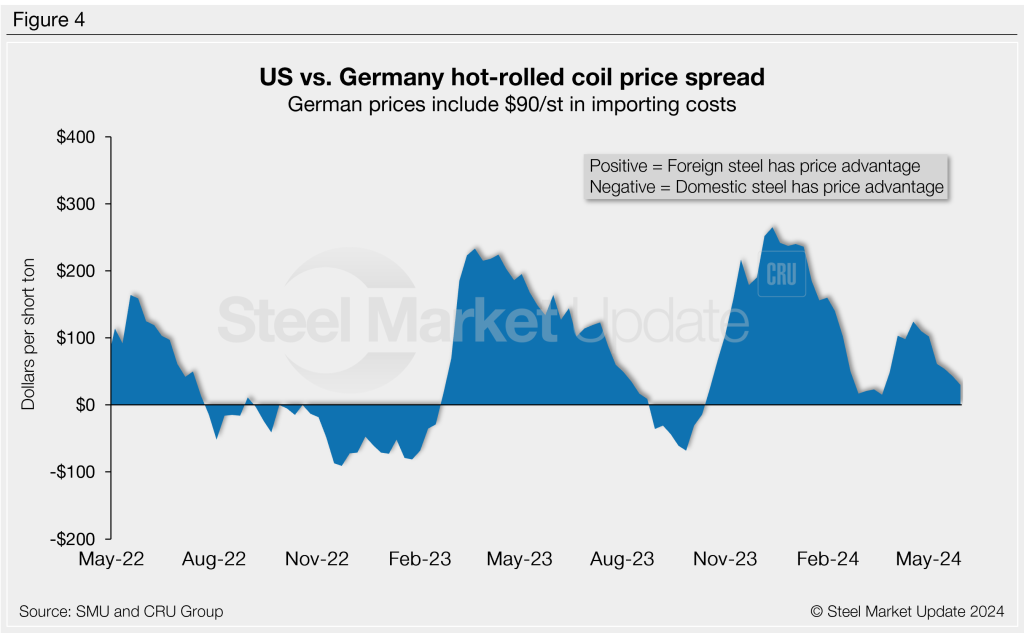
Notes: Freight is important in deciding whether to import foreign steel or buy from a domestic mill. Domestic prices are referenced as FOB the producing mill, while foreign prices are CIF the port (Houston, NOLA, Savannah, Los Angeles, Camden, etc.). Inland freight, from either a domestic mill or from the port, can dramatically impact the competitiveness of both domestic and foreign steel. It’s also important to factor in lead times. In most markets, domestic steel will deliver more quickly than foreign steel.
Effective Jan. 1, 2022, Section 232 tariffs no longer apply to most imports from the European Union. It has been replaced by a tariff rate quota (TRQ). Therefore, the German and Italian price comparisons in this analysis no longer include a 25% tariff. SMU still includes the 25% Section 232 tariff on prices from other countries. We do not include any antidumping (AD) or countervailing duties (CVD) in this analysis.





